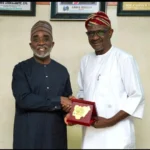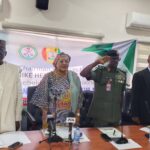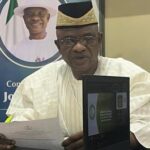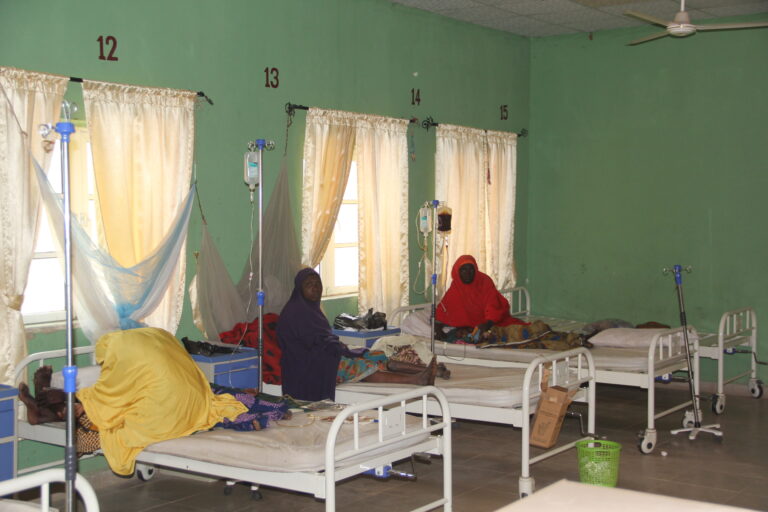Boosting healthcare via PHCs: The Katsina example
Zubairu Idris, News Agency of Nigeria (NAN)
A healthy nation, the saying goes, is a wealthy nation. Primary Health Centres (PHCs) form the foundation of Nigeria’s healthcare structure. It is the closest to the people.
According to the World Health Organisation (WHO), Primary Health Centres (PHCs) are those facilities that provide accessible health services to people at the grassroots.
They are, therefore, essential in addressing those health challenges that are common at that level of the society such as malaria, and undertake immunisation and maternal and infant care.
They focus on people’s needs, provide care as early as possible, ensure equitable distribution of health services, contribute in preventing disease outbreak and ensure highest possible level of health and well-being.
In Katsina State the government recognises the importance of PHC in meeting the people’s healthcare needs hence the current efforts to reposition the system and make it more efficient.
Gov. Dikko Radda, underscored this said recently during the 2025 Budget Presentation at the State House of Assembly when he declared that healthcare remained one of the critical sectors for his administration.
“We set out to build the best healthcare sector in Nigeria as contained in the 2025 budget, tagged, ‘Building Your Future II.
“Implementing the 2024 budget allowed us to achieve milestone in our target of having at least one comprehensive primary healthcare facility in each of the 361 wards in the state,” he said.
According to Radda, Katsina state currently has the highest number of primary, secondary and tertiary health institutions in Nigeria, totalling 1,751, out of which, over 85 per cent are functional.
He spoke when he received the Minister of Health and Social Welfare, Prof. Muhammad Ali Pate, who led representatives from the Bill and Melinda Gates Foundation, Aliko Dangote Foundation, and the National Primary Health Care Development Agency (NPHCDA) to the state.
Presently, he said: “the government has completed the refurbishment of 102 comprehensive health centers, and recently, contracts for another 158 PHCs were awarded, bringing the total to nearly 300.”
“By the end of this administration, we aim to have 360 fully functional primary healthcare centres across the state, each equipped with staff quarters, ambulances, and essential medical equipment.”
To ensure these facilities operate efficiently, Gov. Radda said: “we are deploying at least three community health workers per facility and implementing a three-shift system for 24-hour service delivery.”
Already, the state government has expended N13.4 billion on upgrading of 146 Primary Health Centres across the state, according to Deputy Governor, Malam Faruk Lawal-Jobe.
The Correspondents Chapel, Katsina State Council, Nigeria Union of Journalists (NUJ) recently undertook a tour of Local Government Areas (LGAs) in the state for first-hand knowledge of developmental projects at the grassroots.
During the visit, it was observed that the government had upgraded the said PHCs.
It was observed that no fewer than three PHCs were renovated in each of the 34 LGAs in the state, while in some cases new ones were under construction.
They were also fenced, with staff quarters, toilets, electricity and boreholes to enhance sanitation and personal hygiene.
Those health facilities render 24-hour service to patients, including admission and childbirth, but refer critical cases to the secondary and tertiary health institutions.
They also serve people from neighbouring Niger Republic, especially those living in the border communities such as Jibia.
Jibia Local Government Area is among the frontline LGAs facing after effects of insecurity in neighbouring Niger Republic.
Therefore, it is common for foreigners seek for medical attention from health facilities in the area.
Some of the patients interviewed, applauded the professionalism of the health workers anytime they come to such facilities.
The patients said, though they also have health facilities in their country, they preferred to come to Nigeria, Katsina State in particular for better treatment.
Rabi Sani, a mother, said that she brought her child from Mairaga, Niger Republic, for treatment of diarrhoea.
“I brought my child here because of diarrhoea, they gave me some medications.
“I am very grateful for treating my child. I was introduced to the facility by some people in our area,” she said.
Another woman, Ma’u Haruna, said that she came to Magama-Jibia Comprehensive Health Centre, for treatment of her child who is experiencing a fever.
“Health workers said my child is malnourished, they gave me milk and some drugs for the treatment of the disease.
“We came to Nigeria because they don’t discriminate. They provide all support to our children; that is why we come here.
“They also advised us on regular hand washing, especially before preparing food for our children,” she said.
On her part, Nafisa Lawal from Karmatawa, said that: “I brought my child here because I heard it from people that the health facility give proper treatment to all those who visited them.
“My child is battling with diarrhoea and vomiting. I am after better treatment, I don’t mind the distance, though, our health facilities are closer to us,” she said.
The Officer in Charge of the facility, Dahiru Magaji, said that they receive patients from neighbouring Niger Republic on a regular basis to seek treatment for various health challenges, including child delivery and malnutrition.
Mrs Maryam Abdullahi, a resident of Muduri in Baure LGA, applauded the government for upgrading the facility for effective service delivery.
Abdullahi said the residents of the area do not need to travel to Daura or other distant places for treatment of minor health problems.
She said the facility had contributed immensely in reducing child and maternal deaths arising from delays due to distance.
She said it has also minimised the risks associated with patronising untrained traditional birth attendants.
Nevertheless, experts say that the importance of improving primary healthcare centres can never be overemphasised.
Musa Abdullahi, a community health extension officer, said that PHCs help to make healthcare delivery cost-effective, raise a healthy society and serve as mechanism for quick response during diseases outbreak.
He, therefore, urged the governments to intensify efforts in improving access to primary healthcare services in rural communities.
Abdullahi commended both the state and local governments for the proper attention they are giving to the development of primary healthcare services.
The officer further urged the governments to continue to do more in providing adequate manpower to effectively manage the health facilities.
“I believed the government can do that because we have seen what it did in the education sector by recruiting over 7,000 teachers at a time.
“That has contributed immensely in addressing the shortage of manpower in both primary and secondary schools in the state.
“So, we also want the state government to do the same in the health sector to improve our wellbeing,” he said. (NANFeatures)
**If used please credit the writer and News Agency of Nigeria












